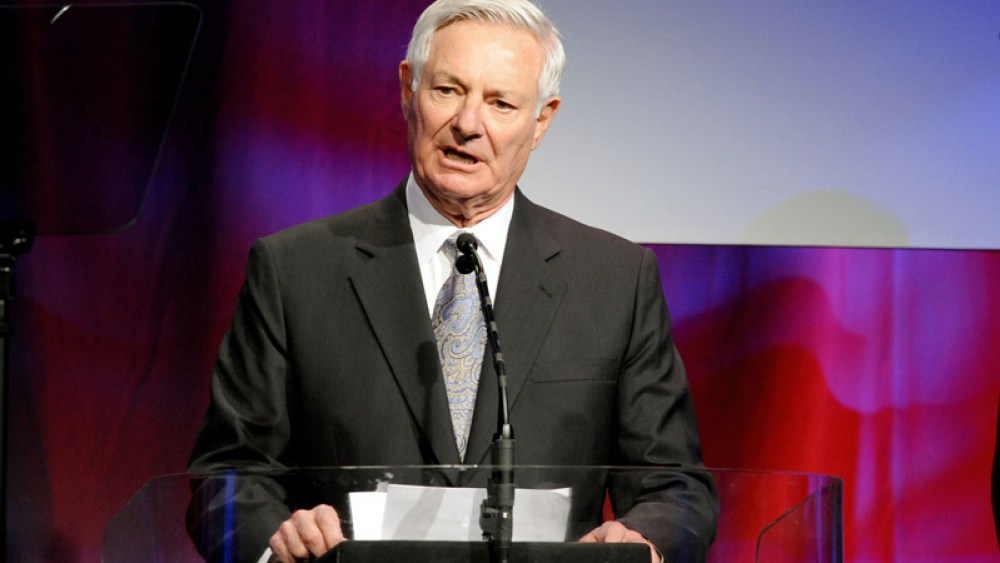The repercussions will be enormous. Venerable entertainment lawyer Bruce Ramer, of Gang Tyre Ramer Brown and Passman, tells Variety that the shuttering of the Corporation for Public Broadcasting will have deep impact on public media across the country.
“The public system as a whole can’t survive with out the infusion of monies from federal government that come via at the CPB,” said Ramer, who spent 16 years on the nine-member board that oversees the CPB. He served numerous terms as chairman.
Ramer’s response came as word spread that the independent agency will cease operations in September. Now that the Trump administration has successfully stripped CPB of its funding and clawed back $1.1 billion already dispersed for 2026 and 2027, the CPB disclosed Friday that it is winding down after nearly 60 years as an independent entity.
“Despite the extraordinary efforts of millions of Americans who called, wrote and petitioned Congress to preserve federal funding for CPB, we now face the difficult reality of closing our operations,” CPB president and CEO Patricia Harrison said in a statement.
The CPB is based in the heart of Washington, D.C. and it has about 100 employees. In 2024, the Biden adminstration appropriated about $525 million in funds for the CPB to allocate among public radio and TV stations, including affiliates of NPR and PBS, as well as wholly independent outlets.
Ramer pointed to Marfa Public Radio, an outlet that serves a region southwest of San Antonio near the Mexico border. In times of natural disaster, Marfa Public Radio has often been the only outlet available to serve residents with vital news and emergency information.
“I fell in love with this station,” Ramer said. “They were able to stay on the air when others weren’t.”
But with the CPB funds that have been rescinded, the fate of such stations is very much in doubt. The CPB dollars are the seed money that allows stations to execute more elaborate fundraising efforts from the general public.
“This is as established as scientific fact. Money feeds broadcasting,” Ramer said. “The system will not function without priming the pump.”
The dismantling of the CPB is personally hard for Ramer to watch, given his investment of time and energy at the CPB. He was nominated to the board by three presidents — George W. Bush, Barack Obama and finally Donald Trump in 2020. CPB board members are approved by Congress. Five of the nine board members including the chair are typically aligned with the incumbent administration in terms of political affiliation. But Ramer stressed that CPB leaders for decades have prided themselves on keeping politics outside of their decision-making.
In fact, the CPB structure was established by Congress in 1967 as a means of putting some distance between its work and the politicians who vote on the annual Congressional budget allocation.
“There’s a saying that CPB is the wall that gets punched on both sides. But it works,” Ramer said. He noted that most countries and all major democracies have some form of public media funding in place.
What’s more, the CPB went out of its way to stay out of specific editorial decisions. Grants are made to stations and producers more so than to support specific shows or productions. But CPB seed money has been crucial in supporting most major PBS franchises, from “Sesame Street” to “Masterpiece Theatre” to “PBS NewsHour.” Some CPB monies are designated specifically to support community-building and audience outreach events, Ramer added.
Stations can also apply for CPB funds to help build out technical and infrastructure assets needed to expand their reach or to support live streaming and webcasting of shows. All of that is at risk with the sudden loss of funds.
“It’s a very sad day. I have great faith in the public system. Is it perfect? No. Nothing is. But it’s damn good,” Ramer said. “It’s superb for children’s programming, for specialty programs. And they also put on shows on July 4 that the whole nation watches. It’s a major part of this country. And now they’re liquidating.”
Ramer left the board after reaching his term limit at the end of 2024. He missed his involvement with such a core part of the nation’s media infrastructure. He has hope that the CPB structure will be resurrected once there’s a change in White House regimes.
“Hopefully, it can be saved,” Ramer said.

